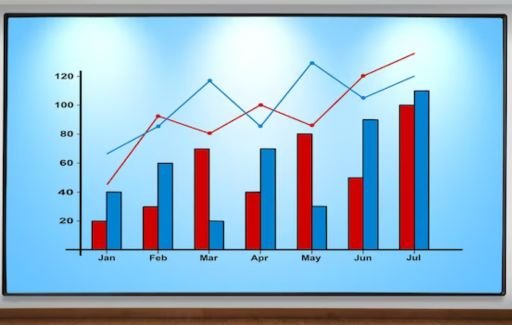


Wondering how your website ranks on Google and other search engines? Want to track your website's search engine rankings over time? Checking your site's position in Google search results is crucial for monitoring SEO progress and identifying new SEO opportunities.
In this comprehensive guide, we'll walk you through everything you need to know about checking your site's ranking on Google.
There are a few different ways to check your Google ranking for target keywords and pages. Here are the top options:
The easiest way to check where your site ranks in Google search is to do a manual search:
Repeat this for other important keywords and pages on your site. While simple, this method only gives you a snapshot at one point in time. It also relies on manual searching, which can be tedious.
For a quicker way to check rankings, use a free domain authority checker tool like MozBar or SEMrush's SERP checker. Here's how:
Free SERP checkers like these make it fast and easy to check Google rankings on an ongoing basis.
For more powerful, automated rank tracking, use paid tools like Ahrefs, SEMrush, or Moz.
These platforms continuously check and record your Google rankings for target keywords over time. You can check rankings for your entire site and generate custom reports.
Paid rank trackers give you an accurate, real-time view of your site's search performance. The hands-free approach frees you from manual ranking checks.
Sometimes you may want to check rankings for specific pages on your site, not just the domain.
To check page-level Google rankings, add the page URL to your tracking campaigns in SEMrush or Moz. Or do a site-specific Google search like:
site:yourdomain.com/page-url keyword
This will show where that specific page ranks for the target term.
Use a mix of domain and page-level tracking to monitor overall search visibility along with rankings for key pages.

Along with checking overall site rankings, you also need to track keyword rankings – where you place individual search queries.
Here are some tips for monitoring your keyword rankings in Google results:
Keyword rankings give you more granular data on the terms driving traffic and visibility for your site. Continuous checks help you spot ranking gains and losses.
Wondering where your site ranks for a specific keyword? Here are a few quick ways to check current Google ranking for a target keyword or phrase:
Start typing your keyword into Google Search. If your site appears in the autocomplete dropdown, that's a good sign it ranks on the first page. Click through to confirm the ranking.
Do a manual Google search for your exact keyword. Scan the top 10 organic results for your site's URL to see the current ranking position.
Install a browser extension like MozBar or check rankings in SEMrush. This shows Google rankings as you search.
Look for your target keyword under Performance > Queries in Google Search Console. This shows impressions and clicks from ranking positions.
Paid tools like Ahrefs and Moz give exact ranking data for all keywords. Set up tracking for the specific phrase.
Check ranking for your core target keywords weekly or monthly to spot trends. Consistent checks help you monitor SEO progress over time.

Google uses a complex mix of over 200 ranking factors when determining search result rankings. Here are some of the most important elements that impact where your site ranks in Google Search:
Focus your SEO efforts on moving the needle on these types of ranking factors to bump your site up in the Google results.
Here are the key steps to check your overall website's ranking on Google:
Consistent checks give you insights into how your site ranks overall and where you stand vs. competitors. This helps guide your ongoing SEO and content improvement efforts.
Wondering where your website ranks in Google search results? Here are a few simple ways to check your website's current position on Google:
Routinely checking your website's Google ranking position reveals how your SEO efforts are impacting search visibility and traffic. Consistent monitoring shows you areas to focus on to move up in the rankings.
Here are some pro tips for beginners on how to regularly check rankings for SEO monitoring and reporting:
Consistent, thorough ranking checks give you the SEO visibility data you need to expand your web presence.
A: Ideally, check your important keyword and website rankings from Google at least once per week. For larger sites, twice per week is better to spot fluctuations. Use automated rank tracking to make this easy.
A: Generally, the top 5 organic results on page 1 of Google drive the most clicks and traffic. So page 1 ranking, ideally in spots 1-5, is considered a good Google ranking.
A: Free browser extensions like MozBar and Ubersuggest's site audit tool let you quickly check Google ranking positions as you search. Sign up for free accounts with SEMrush, Ahrefs, or Moz to use basic rank-tracking features.
A: If your site isn't ranking at all in Google, it likely has not been fully indexed yet. Check your site's index status in Google Search Console. Implement technical SEO fixes to improve crawlability and indexation.
A: It can take 2-3 months to begin seeing positive ranking gains from ongoing SEO efforts. Be patient, focus on quality and optimization, and track over time. Consistent, high-quality work leads to improved rankings.
Checking your website's ranking position in Google search results is a key aspect of monitoring SEO efforts and identifying new growth opportunities.
Use a combination of manual spot checks and automated rank-tracking software to get a complete picture of your site's visibility. Track both overall website rankings and individual keyword rankings.
Focus on reaching page 1 of Google rankings for your target keywords. Compare your position to competitors and aim for spots within the top 3-5 results for priority search terms.
With regular Google ranking checks, you can see the tangible impact your SEO and content work has on search visibility. Use these ranking data points to guide your optimization strategy and expand your web presence.